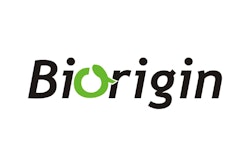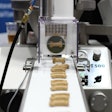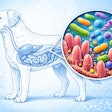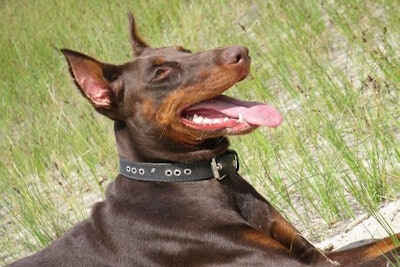
Serum C-reactive protein, a marker of inflammation, tended to increase only for the control group after the surgery, while BG-supplemented animals maintained basal CRP levels.The nutritional care of dogs and cats has significantly improved in recent years. Diets are designed to promote health and wellness and to support and/or aid in the treatment of several conditions, such as convalescence, obesity and diabetes, and renal, cardiac and hepatic diseases.
Surgical stress is followed by profound metabolic and endocrine alterations that were already shown to be capable of influencing the body’s defense response, mainly by causing a suppression of cellular immunity. These mechanisms impair the immune function and can predispose the patients to infections; consequently, the condition may progress to septic shock and multiple organ failure, with high rates of mortality. Moreover, depending on the extent of the surgery and the degree of tissue remotion/destruction, the animal may have intense pain due to inflamed tissues.
The use of immunomodulators can be helpful in situations where immunity is impaired, because the modulation of the immune response could lead to an optimization of the body’s response. Beta-1,3/1,6-glucans are glucose polymers linked by beta-1,3 linkages with beta-1,6 side chains, and are recognized by their immunomodulating effects, through interactions with immune cells. They act by their interaction with specific receptors, leading to a modulation in the production of pro- and anti-inflammatory cytokines, which play a role on the immune cells’ functions.
In dogs, it was already proven that these compounds can modulate cytokine production, increase the functional activity of leukocytes and stimulate the production of antibodies. Recently, its benefits have also been proven in clinical situations, as an adjuvant treatment for atopic dermatitis, inflammatory bowel disease and osteoarthritis.
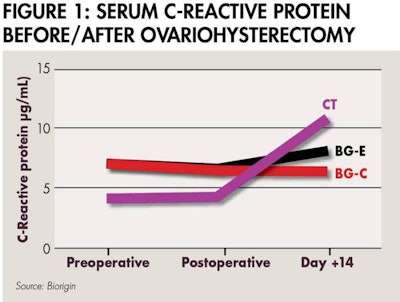
Serum C-reactive protein, a marker of inflammation, tended to increase only for the control group after surgery, while BG-supplemented animals maintained basal CRP levels.
Up to now, few studies evaluated the influence of surgical procedures on the immune system of dogs and no data is available about the use of beta-1,3/1,6-glucans in such situations. Spaying, or ovariohysterectomy, is more and more common, especially in developed countries, because of its benefits (e.g., prevention and treatment of ovarian and uterine diseases, reduces the risk of mammary neoplasia, behavioral modification) and besides being an elective surgery, it is important that the immune system works properly for a full recovery after the procedure. Thus, a recent study evaluated if the consumption of these compounds by bitches in the pre- and postoperative period could modulate the immune system and prevent the immunosuppression caused by the surgery. Additionally, this type of surgery could be thought as a model for testing the immunomodulatory properties of an immunomodulatory substance.
Twenty-eight privately owned bitches of different breeds were selected for elective spaying surgery and all the animals were considered healthy by physical and laboratory examination. They were divided into three groups: CT= control group (n=10), animals that received an extruded diet without beta-glucans or yeast derivates; BG-E (n=9), addition of 0.1% purified beta-1,3/1,6-glucan from yeast (MacroGard, Biorigin, Brazil), included prior to extrusion in a dry food; BG-C (n=9), supplementation of the same beta-glucan dosage, provided in capsules. Animals were kept at their own homes and fed by the owners in the recommended amounts.
Evaluations were performed in four periods: 14 days before the surgery, immediately before the surgery (preoperative), immediately after the surgery (postoperative) and 14 days after the surgery (day +14). Bitches were fed the experimental treatments from day 14 before surgery until day 14 after the procedure, totaling 28 days.
As hypothesized before, great evidence that immunity is affected by the surgery was found, due to the fact that in all the groups a reduction on cell counts, an increase on phagocytosis and an increase on IFN-γ in cell culture were observed after the surgery, highlighting the immunological challenge. Bitches fed BG-E and BG-C diets had higher counts of peripheral white blood cells and T cytotoxic lymphocytes than CT. Serum C-reactive protein (CRP), a marker of inflammation, tended to increase only for the control group after the surgery, while BG-supplemented animals maintained basal CRP levels (see Figure 1).
The results of CRP measurement show that beta-1,3/1,6-glucans supplementation have contributed to a less intense or shorter inflammatory response after surgery. The persistence of increased levels of CRP is indicative of chronic inflammation, so a reduction of this protein may represent a benefit to the health, especially in patients undergoing surgical procedures, being potentially indicative of a more efficient wound healing process.
The study cited above was able to show that beta-1,3/1,6-glucans from yeast modulate the immune system, increasing blood leukocytes and preventing chronic inflammation by modulating the levels of CRP. As immunosuppression and inflammation are conditions that occur for several reasons, a wide variety of applications for beta-glucans can be established in dogs.
The model used was also suitable to the study of nutraceuticals, and similar studies could be conducted to evaluate the action of further substances on dogs’ immunity.
